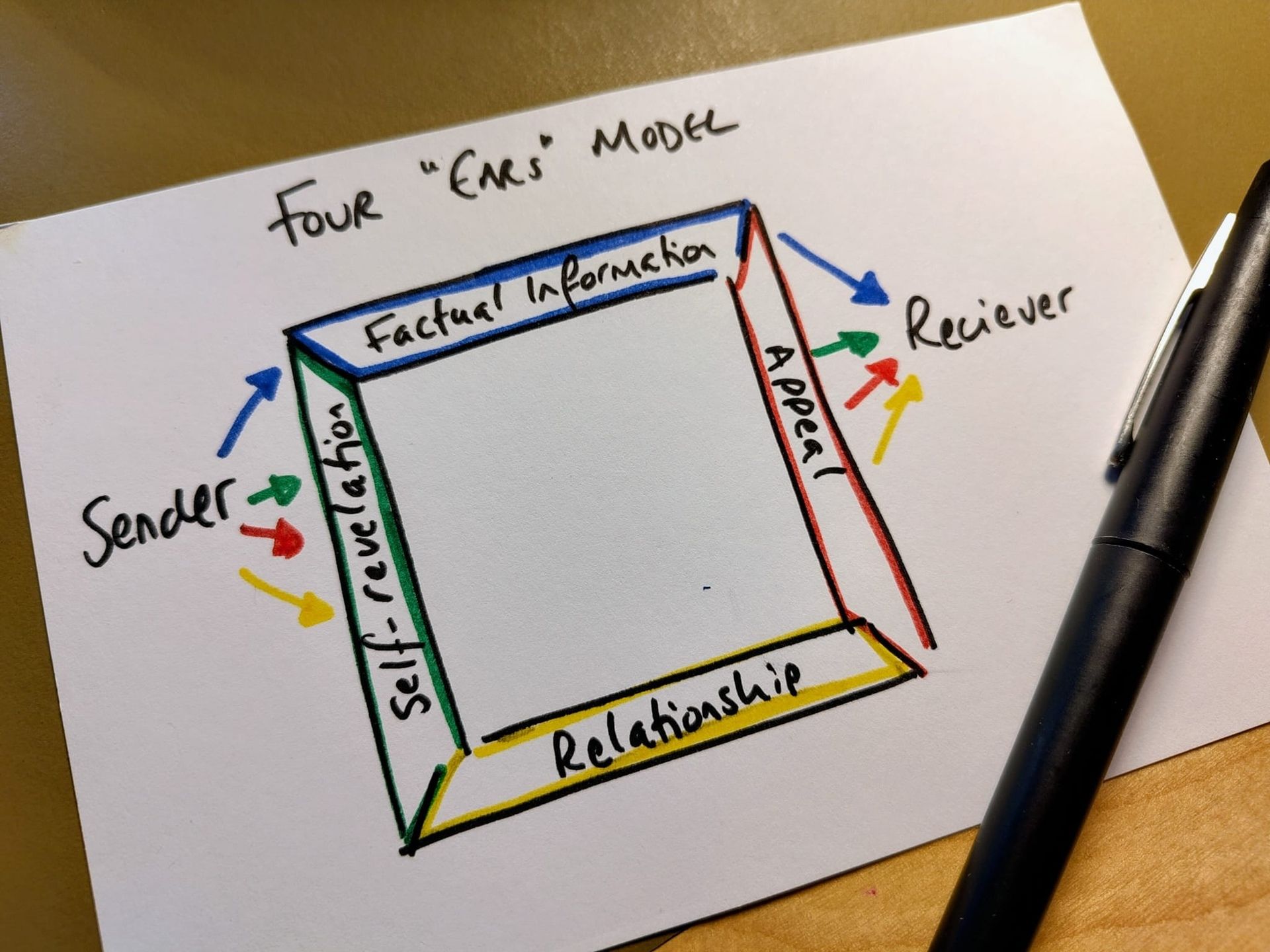- Unmute
- Posts
- [Tiny moment] Big misunderstanding
[Tiny moment] Big misunderstanding
A small comment sparked a big realisation: we don’t just hear words, we listen through four different ears.
Hello hello,
I received a DM last week that left me a little shook.
It came from an attendee and speaker at a conference I moderated a few months ago. She opened warmly, apologising for the delay. But then she got to the real reason for reaching out, something had been sitting with her since we met.
She’d come to the event with her daughter in tow. One evening, a small group of us were having dinner together, and her daughter was curled up beside her, dozing at the table.
I turned to her and said, half to her, half to the table:
“I reckon that girl manages to fall asleep anywhere,”
I remember her expression shifting, just slightly. I registered it. And then kept talking.
A couple of months later, she reached out to say the comment had really bothered her.
She had heard it as judgmental.
But here’s the thing:
As a mother myself, I meant it admiringly. I’d been imagining what it would be like to have my own daughter accompany me to these kinds of events. I was impressed. Maybe even a little envious.
Same sentence. Two completely different interpretations.
Four Ears, One Sentence
This experience reminded me of the Four Ears Model by German psychologist Friedemann Schulz von Thun. It suggests that every message we send contains four layers and every message we receive is heard through one (or more) of four “ears”:
Factual Ear → What is being stated as information?
Self-Revelation Ear → What does this say about the speaker?
Relationship Ear → What does this say about how they see me?
Appeal Ear → What are they asking me to do, feel, or think?

Let’s look at that same sentence through these ears: “I reckon that girl manages to fall asleep anywhere.”
Factual Ear: She seems able to fall asleep anywhere.
Self-Revelation Ear: I’m someone who notices, maybe admires, that quality.
Relationship Ear: Is she saying I’m letting my kid fall asleep inappropriately?
Appeal Ear: Should I be embarrassed? Should I explain something?
It’s easy to assume that if our intent is good, the impact will match.
But in remote teams, high-pressure environments, or cross-cultural settings, this assumption breaks down. We miss cues. We jump to conclusions. We carry invisible histories into every interaction.
What saved this moment was her courage to ask for clarity and my willingness to provide it.
In Remote Teams, Misunderstanding is a Given
In your team or organisation, how often do people:
Hear something through the wrong “ear”?
Respond to tone instead of content?
Walk away feeling unseen, even when that wasn’t the intent?
What would shift if we built in tiny rituals to check in, clarify, or restate?
What would happen if we trained ourselves to ask:
“What did you mean by that?”
“How did that land for you?”
“Here’s what I meant: how did it come across?”
These small shifts in communication might not solve every tension. But they help us show up with more care, more clarity, and more humanity.
Ever been misunderstood or misunderstood someone else?
What helped you repair it?
I’d love to hear.
Curiously connecting,
Always,
Perle
P.S. I recently opened up my calendar for drop-in facilitation coaching sessions. These are relaxed but focused 1:1 calls on Friday mornings, designed for facilitators, moderators, or leaders who want to build confidence, get practical ideas for designing workshops and gatherings, or refine their own way of showing up in the room.